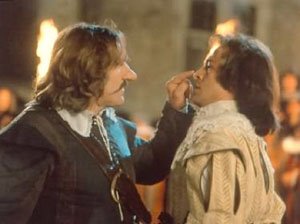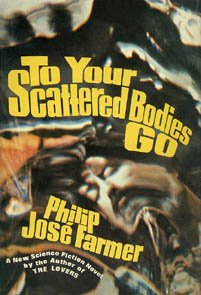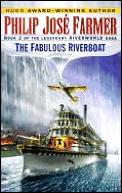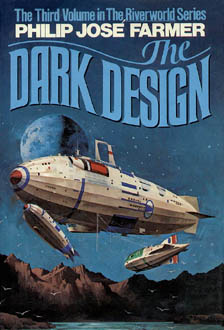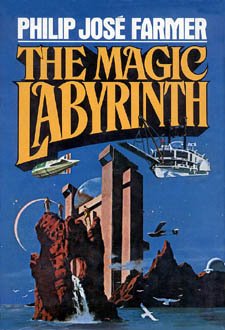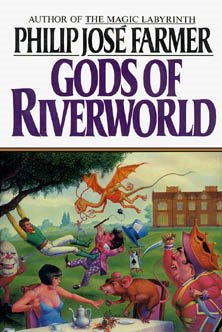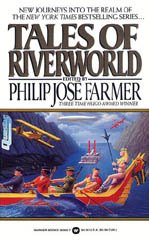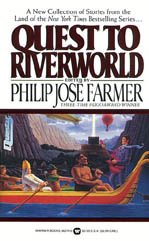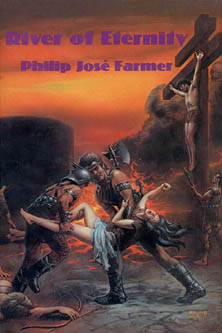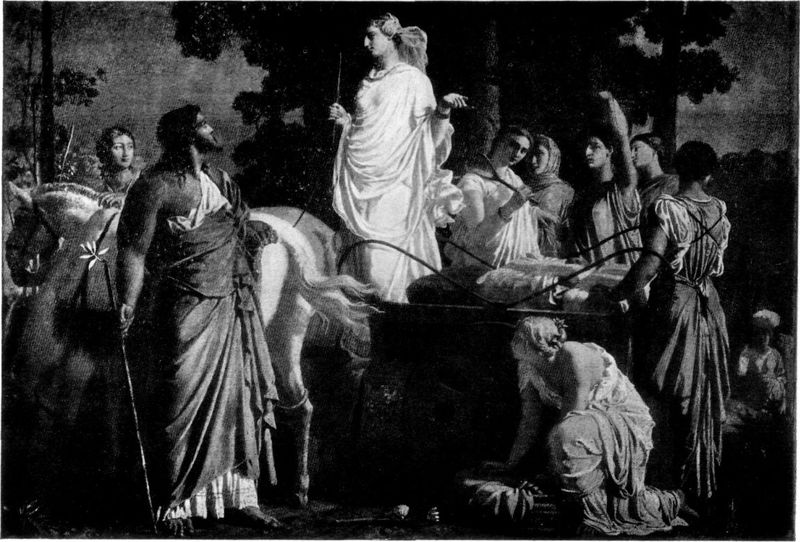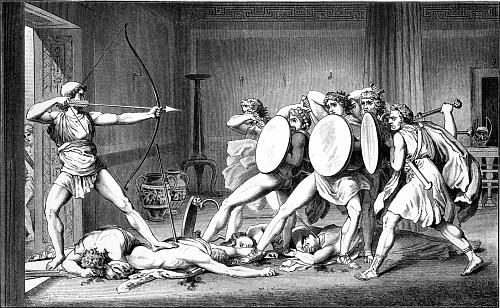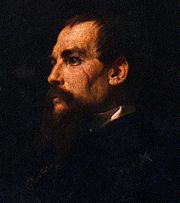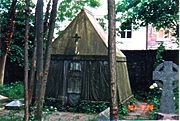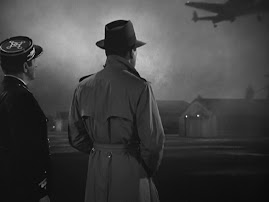In his own words "fit for nothing but to be shot at for six pence a day",Burton enlisted in the army of the
East India Company at the behest of his ex-college classmates who were already members. He hoped to fight in the
first Afghan war but the conflict was over before he arrived in India. He was posted to the 18th Bombay Native Infantry based in
Gujarat and under the command of General Sir
Charles James Napier. While in India he became a proficient speaker of
Hindustani,
Gujarati and
Marathi as well as
Persian and
Arabic. His studies of
Hindu culture had progressed to such an extent that "my Hindu teacher officially allowed me to wear the Janeu (
Brahmanical Thread)" although the truth of this has been questioned since it would usually have required long study, fasting and a partial shaving of the head. Burton's interest (and active participation) in
the cultures and
religions of India was considered peculiar by some of his fellow soldiers who accused him of "going native" and called him "the White Nigger". Burton had many peculiar habits that set him apart from other soldiers. While in the army, he kept a large
menagerie of tame
monkeys in the hopes of
learning their language. He also earned the name
"Ruffian Dick" for his "demonic ferocity as a fighter and because he had fought in single combat more enemies than perhaps any other man of his time."
He was appointed to the
Sindh survey, where he learned to use the measuring equipment that would later be useful in his career as an explorer. At this time he began to travel in
disguise. He adopted the alias of Mirza Abdullah and often fooled local people and fellow officers into failing to recognise him. It was at this point that he began to work as an agent for Napier and, although details of exactly what this work entailed are not known, it is known that he participated in an undercover investigation of a
brothel said to be frequented by English soldiers where the prostitutes were young boys. His life-long interest in sexual practices led him to produce a detailed report which was later to cause trouble for Burton when subsequent readers of the report (which Burton had been assured would be kept secret) came to believe that Burton had, himself, participated in some of the practices described within his writing.
In March 1849 he returned to Europe on sick leave. In 1850 he wrote his first book Goa and the Blue Mountains, a guide to the
Goa region. He travelled to
Boulogne to visit the fencing school there and it was there where he first encountered his future wife
Isabel Arundell, a young
Catholic woman from a good family.
First explorations and journey to Mecca (1851–1853)
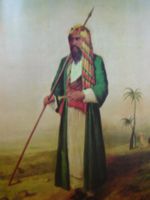 Burton in Arabic dress.
Burton in Arabic dress. Motivated by his love of adventure, Burton got the approval of the
Royal Geographical Society for an exploration of the area and he gained permission from the Board of Directors of the
British East India Company to take leave from the army. His seven years in India gave Burton a familiarity with the customs and behaviour of
Muslims and prepared him to attempt a
Hajj (pilgrimage to
Mecca and, in this case,
Medina). It was this journey, undertaken in 1853, which first made Burton famous. He had planned it whilst travelling disguised among the Muslims of Sindh, and had laboriously prepared for the ordeal by study and practice (including being
circumcised to further lower the risk of being discovered).
Although Burton was not the first non-Muslim European to make the Hajj (
Ludovico di Barthema in 1503 is believed to hold that distinction), his pilgrimage is the most famous and the best documented of the time. He adopted various disguises including that of a
Pashtun to account for any oddities in speech, but he still had to demonstrate an understanding of intricate Islamic
ritual, and a familiarity with the minutiae of Eastern manners and etiquette. Burton's trek to Mecca was quite dangerous and his caravan was attacked by bandits (a common experience at the time). As he put it, although "...neither
Koran or
Sultan enjoin the death of Jew or Christian intruding within the columns that note the sanctuary limits, nothing could save a European detected by the populace, or one who after pilgrimage declared himself an unbeliever." The pilgrimage entitled him to the title of
Hajji and to wear green head wrap. Burton's own account of his journey is given in A Personal Narrative of a Pilgrimage to Al-Medinah and Meccah (1855).
Early explorations (1854–1855)
Following his return to Cairo from Mecca, Burton sailed to India to rejoin his regiment. In March 1854, he transferred to the political department of the East India Company and went to Aden on the Arabian Peninsula in order to prepare for a new expedition, supported by the Royal Geographical Society, to explore the interior of the Somali Country and beyond, where Burton hoped to discover the large lakes he had heard about from Arab travelers. It was in Aden in September of this year that he first met Captain (then Lieutenant)
John Hanning Speke who would accompany him on his most famous exploration. Burton undertook the first part of the trip alone. He made an expedition to
Harar (in present day Ethiopia), which no European had entered (indeed there was a prophecy that the city would decline if a Christian was admitted inside). This leg of the expedition lasted three months, although much of the time was spent in the port of
Zeila, where Burton, once again in disguise, awaited word that the road to Harar was safe. Burton not only travelled to Harar but also was introduced to the Emir and stayed in the city for ten days, officially a guest of the Emir but in reality his prisoner. The journey back was plagued by lack of supplies, and Burton wrote that he would have died of thirst had he not seen desert birds and realised they would be near water.
Following this adventure, he prepared to set out for the interior accompanied by Lieutenant Speke, Lieutenant G. E. Herne and Lieutenant William Stroyan and a number of Africans employed as bearers. However, before the expedition was able to leave camp, his party was attacked by a group of Somali tribesmen (the officers estimated the number of attackers at 200). In the ensuing fight, Stroyan was killed and Speke was captured and wounded in eleven places before he managed to escape. Burton was impaled with a javelin, the point entering one cheek and exiting the other. This wound left a notable scar that can be easily seen on portraits and photographs. He was forced to make his escape with the weapon still transfixing his head. However, the failure of this expedition was viewed harshly by the authorities, and a two-year investigation was set up to determine to what extent Burton was culpable for this disaster. While he was largely cleared of any blame, this did not help his career. He describes the harrowing attack in First Footsteps in East Africa (1856).
In 1855, Burton rejoined the army and travelled to the
Crimea hoping to see active service in the
Crimean War. He served on the staff of Beatson's Horse a corps of
Bashi-bazouks, local fighters under the command of General Beatson, in the
Dardanelles. The corps was disbanded following a "mutiny" after they refused to obey orders and Burton's name was mentioned (to his detriment) in the subsequent inquiry.
Exploring the lakes of central Africa (1856–1860)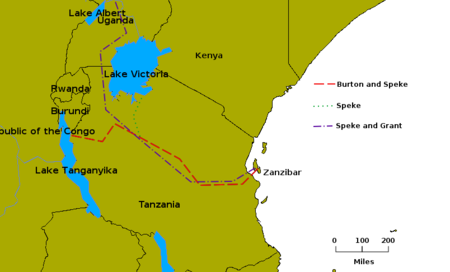 Routes taken by the expeditions of Burton and Speke (1857–1858) and Speke and Grant (1863).
Routes taken by the expeditions of Burton and Speke (1857–1858) and Speke and Grant (1863). In 1856 the
Royal Geographical Society funded another expedition in which Burton set off from
Zanzibar to explore an "inland sea" which was known to exist. His mission was to study local tribes and to find out what exports might be possible from the region. It was hoped that the expedition might lead to the discovery of the source of the
River Nile, although this was not an explicit aim. Burton had been told that only a fool would say his expedition aimed to find the source of the Nile because anything short of that would be regarded as a failure.
Before leaving for Africa, Burton became secretly engaged to
Isabel Arundell. Her family would never accept the marriage since Burton was not a Catholic and was not wealthy.
Speke again accompanied him and on the
27 June 1857 they set out from the east coast of Africa heading west in search of the lake or lakes. They were helped greatly by their experienced local guide, Sidi Mubarak (also known as "Bombay"), who was familiar with some of the customs and languages of the region. From the start the outward journey was beset with problems such as recruiting reliable bearers and the defalcation of equipment and supplies by deserting expedition members. Both men were beset by a variety of tropical diseases on the journey. Speke was rendered blind for some of the journey and deaf in one ear (due to an infection caused by attempts to remove a beetle). Burton was unable to walk for some of the journey and had to be carried by the bearers.
The expedition arrived at
Lake Tanganyika in February 1858. Burton was awestruck by the sight of the magnificent lake, but Speke, who had been temporarily blinded by a disease, was unable to see the body of water. By this point much of their surveying equipment was lost, ruined, or stolen, and they were unable to complete surveys of the area as well as they wished. Burton was again taken ill on the return journey and Speke continued exploring without him, making a journey to the north and eventually locating the great
Lake Victoria, or Victoria Nyanza. Lacking supplies and proper instruments Speke was unable to survey the area properly but was privately convinced that it was the long sought source of the Nile. Burton's description of the journey is given in Lake Regions of Equatorial Africa (1860). Speke gave his own account in The Journal of the Discovery of the Source of the Nile (1863).
Both Burton and Speke were in extremely poor health after the journey and returned home separately. As usual Burton kept very detailed notes, not just on the geography but also on the languages, customs and even sexual habits of the people he encountered. Although it was Burton's last great expedition his geographical and cultural notes were to prove invaluable for subsequent explorations by Speke and
James Augustus Grant, Sir
Samuel Baker,
David Livingstone and
Henry Morton Stanley. Speke and Grant's (1863) exploration began on the east coast near Zanzibar again and went around the west side of Lake Victoria to
Lake Albert and finally returning in triumph via the Nile River. However, crucially, they had lost track of the river's course between Lake Victoria and Albert. This left Burton, and others, unsatisfied that the source of the Nile was conclusively proven.
Burton and Speke
Lake Tanganyika photographed from orbit. Burton was the first European to see the lake.
Burton and Speke's exploration to Tanganyika and Victoria was, arguably, his most celebrated exploration but what followed was a prolonged public quarrel between the two men, which severely damaged Burton's reputation. From surviving letters it seems that Speke already mistrusted and disliked Burton before the start of their second expedition. There are several reasons why they became estranged. It seems obvious that the two men were very different in character, with Speke being more in tune with the prevailing
morality of Victorian England and imperialistic attitude to other cultures. There was obviously a great element of professional rivalry. Some biographers have suggested that friends of Speke (particularly
Laurence Oliphant) stirred up trouble between the two. It also seems that Speke resented Burton's position as expedition leader and claimed that this leadership was nominal only and that Burton was an invalid for most of the second expedition. There were problems with debts run up by the expedition that were left unpaid when they left Africa. Speke claimed that Burton had sole responsibility for these debts. Finally, there was the issue of the source of the Nile, perhaps the greatest prize of its day to explorers. It is now known that
Lake Victoria is a source, but at the time the issue was controversial. Speke's expedition there was undertaken without Burton (who was incapacitated by several illnesses at the time) and his survey of the area was, by necessity, rudimentary, leaving the issue unresolved. Burton (and indeed many eminent explorers such as
Livingstone) were very sceptical that the lake was the genuine source.
After the expedition, the two men travelled home to England separately with Speke arriving in London first. Despite an agreement between them that they would give their first public speech together, Speke gave a lecture at the
Royal Geographical Society in which he made the claim that his discovery, Lake Victoria, was the source of the Nile. When Burton arrived in London he found Speke being lionised, and felt his own role was being considered as that of sickly companion. Furthermore, Speke was organising other expeditions to the region and clearly had no plans to include Burton.
In the subsequent months, Speke did much to attempt to harm Burton's reputation, even going so far as to claim that Burton had tried to poison him during the expedition. Meanwhile Burton spoke out against Speke's claim to have discovered the source of the Nile, saying that the evidence was inconclusive and the measurements made by Speke were inaccurate. It is notable that in Speke's expedition with Grant he made Grant sign a statement saying, amongst other things, "I renounce all my rights to publishing... my own account [of the expedition] until approved of by Captain Speke or the R. G. S. (Royal Geographical Society)".
Speke and Grant undertook a second expedition to prove that Lake Victoria was the true source of the Nile, but again, problems with surveying and measurement meant not everybody was satisfied the issue had been resolved. On
16 September 1864 Burton and Speke were due to debate the issue of the source of the Nile in front of the British Association for the Advancement of Science at that body's annual meeting in Bath. Burton was regarded as the superior public speaker and scholar and was likely to get the better of such a debate. However, the previous day Speke died from a self-inflicted gunshot wound while hunting on a relative's nearby estate. There were no direct witnesses to the shooting, and it has been widely speculated that he might have committed suicide; however, the coroner declared it to be a hunting accident. Burton was at the debate hall in Bath waiting to give his presentation when the news of Speke's death arrived and, considerably shaken, he elected not to give his planned talk.
Diplomatic service, scholarship, and death (1861–1890)
Richard and Isabel Burton's tomb at Mortlake, Surrey.
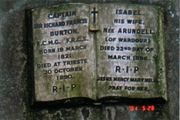 Close up of inscription on the tomb.
Close up of inscription on the tomb. In January 1861, Richard and Isabel married in a quiet Catholic ceremony although he did not adopt the Catholic faith at this time. Shortly after this, the couple were forced to spend some time apart when he formally entered the Foreign Service as
consul at
Fernando Po, the modern island of Bioko in
Equatorial Guinea. This was not a prestigious appointment; because the climate was considered extremely unhealthy for Europeans, Isabel could not accompany him. Burton spent much of this time exploring the coast of
West Africa.
The couple were reunited in 1865 when Burton was transferred to
Santos in
Brazil. Once there, Burton traveled through Brazil's central highlands, canoeing down the
Sao Francisco river from its source to the falls of
Paulo Afonso.
In 1869 he was made consul in
Damascus, an ideal post for someone with Burton's knowledge of the region and customs. However, Burton made many enemies during his time there. He managed to antagonize much of the
Jewish population of the area because of a dispute concerning money lending. It had been the practice for the British consulate to take action against those who defaulted on loans but Burton saw no reason to continue this practice and this caused a great deal of hostility. He and Isabel greatly enjoyed their time there and befriended
Lady Jane Digby, the well-known adventurer, and
Abd al-Kader al-Jazairi, a prominent leader of the Algerian revolution then living in exile.
However, the area was in some turmoil at the time with considerable tensions between the Christian, Jewish and Muslim populations. Burton did his best to keep the peace and resolve the situation but this sometimes led him into trouble. On one occasion, he claims to have escaped an attack by hundreds of armed horsemen and camel riders sent by Mohammed Rashid Pasha, the Governor of Syria. He wrote "I have never been so flattered in my life than to think it would take three hundred men to kill me."
In addition to these incidents, there were a number of people who disliked Burton and wished him removed from such a sensitive position. Eventually, to resolve the situation, Burton was transferred to
Trieste (then part of
Austria-Hungary) during 1871. Burton was never particularly content with this post but it required little work and allowed him the freedom to write and travel.
In 1863 Burton co-founded the
Anthropological Society of London with Dr. James Hunt. In Burton's own words, the main aim of the society (through the publication of the periodical Anthropologia) was "to supply travellers with an organ that would rescue their observations from the outer darkness of manuscript and print their curious information on social and sexual matters". On
February 5,
1886 he was awarded a knighthood (
KCMG) by
Queen Victoria.
He wrote a number of travel books in this period that were not particularly well received. His best-known contributions to literature were those considered risqué or even pornographic at the time and which were published under the auspices of the Kama Shastra society. These books include The Kama Sutra of Vatsyayana (1883) (popularly known as the
Kama Sutra),
The Book of the Thousand Nights and a Night (1885) (popularly known as
The Arabian Nights), The Perfumed Garden of the Shaykh Nefzawi (1886) and The Supplemental Nights to the Thousand Nights and a Night (sixteen volumes 1886– 1898).
Published in this period, but composed on his return journey from Mecca,
The Kasidah has been cited as evidence of Burton's status as a
Sufi. The poem (and Burton's notes and commentary on it) contain layers of Sufic meaning, and seem to have been designed to project Sufi teaching in the West. "Do what thy manhood bids thee do/ from none but self expect applause;/ He noblest lives and noblest dies/ who makes and keeps his self-made laws" is
The Kasidah's most oft-quoted passage.
Other works of note include a collection of Hindu tales, Vikram and the Vampire (1870); and his uncompleted history of
swordsmanship, The Book of the Sword (1884). He also translated
The Lusiads, the
Portuguese national epic by
Luís de Camões, in 1880 and wrote a sympathetic
biography of the poet and adventurer the next year. The book The Jew, the Gipsy and el Islam was published posthumously in 1898 and was controversial since it was virulently
anti-Semitic in tone and asserted the existence of
Jewish human sacrifices. (Burton's investigations into this had provoked hostility from the Jewish population in Damascus, see
Damascus affair. The manuscript of the book included an appendix discussing the topic in more detail, but by the decision of his widow it was not included in the book when published).
Burton died in Trieste early on the morning of
20 October 1890 of a heart attack. His wife Isabel convinced a priest to perform the last rites, although Burton was not a Catholic and this action later caused a rift between Isabel and some of Burton's friends. It has been suggested that the death occurred very late on
19 October and that Burton was already dead by the time the last rites were administered.
Isabel never recovered from the loss. After his death she burned many of her husband's papers, including journals and a planned new translation of The Perfumed Garden to be called The Scented Garden, for which she had been offered six thousand guineas and which she regarded as his "magnum opus." She believed she was acting to protect her husband's reputation, and imagined she was instructed to burn the manuscript of The Scented Garden by his spirit, but her actions have been widely condemned.
Isabel wrote a biography in praise of her husband. The couple are buried in a remarkable tomb in the shape of a Bedouin tent at
Mortlake in southwest
London.
The Kama Shastra Society
Burton had long had an interest in sexuality and erotic literature. However, the Obscene Publications Act of 1857 had resulted in many jail sentences for publishers, with prosecutions being brought by the Society for the Suppression of Vice (Burton referred to the society and those who shared its views as
Mrs Grundy). A way around this was the private circulation of books amongst the members of a society. For this reason Burton, together with
Forster Fitzgerald Arbuthnot, created the Kama Shastra Society to print and circulate books that would be illegal to publish in public.
One of the most celebrated of all his books is his translation of the The Book of the Thousand Nights and a Night (more commonly known in English as
The Arabian Nights because of
Andrew Lang's abridged collection) in
ten volumes, (1885) with six further volumes being added later. The volumes were printed by the Kama Shashtra Society in a subscribers-only edition of one thousand with a guarantee that there would never be a larger printing of the books in this form. The stories collected were often sexual in content and were considered
pornography at the time of publication. In particular, the Terminal Essay of the Nights was one of the first English language texts to dare address the practice of
pederasty which he postulated was prevalent in an area of the southern latitudes named by him the "
Sotadic zone." Rumors about Burton’s own sexuality were already circulating and were further incited by this work.
Perhaps Burton's best-known book is his translation of
The Kama Sutra. In fact, it is not really true that he was the translator since the original manuscript was in ancient
Sanskrit which he could not read. However, he collaborated with
Forster Fitzgerald Arbuthnot on the work and provided translations from other manuscripts of later translations. The Kama Shashtra Society first printed the book in 1883 and numerous editions of the Burton translation are in print to this day.
His English translation from a French edition of the Arabic erotic guide
The Perfumed Garden was printed as The Perfumed Garden of the Cheikh Nefzaoui: A Manual of Arabian Erotology (1886). After Richard's death
Isabel burnt many of his papers, including a manuscript of a subsequent translation, The Scented Garden, containing the final chapter of the work, on
pederasty. It is interesting to note that Burton all along intended for this translation to be published after his death, to provide a competence for his widow, and also, as a final gesture of defiance against Victorian society.
Scandals in the life of Richard Burton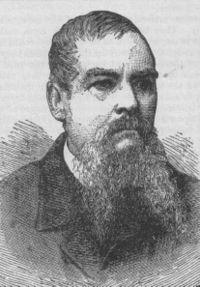 Burton pictured later in life.
Burton pictured later in life. Richard Burton was always controversial and there were those in British society who would leave a room rather than associate with him[
citation needed]. In his
army career he was sometimes known as "Ruffian Dick" and this lack of respect for authority and convention made him many enemies and gave him a reputation in some parts as a rogue[
citation needed].
Firstly, in a society where
sexual repression was the norm, Burton's writing was unusually open and frank about his interest in
sex and
sexuality. His travel writing is often full of details about the sexual lives of the inhabitants of areas he travelled through and many of these details would have been shocking to the average Briton. Burton's interest in sexuality led him to make measurements of the lengths of the sexual organs of male inhabitants of various regions which he includes in his travel books. He also describes sexual techniques common in the regions he visited, often hinting that he had participated, hence breaking both sexual and racial
taboos of his day. Many people at the time considered the Kama Shastra Society and the books it published scandalous.
Allegations of
homosexuality dogged Burton throughout most of his life[
citation needed], at a time when it was a criminal offence in the
United Kingdom. Biographers disagree on whether or not Burton ever experienced
homosexual sex (he never directly acknowledges it in his writing). These allegations began in his army days when General Sir
Charles James Napier requested that Burton go undercover to investigate a male
brothel reputed to be frequented by British soldiers. It has been suggested that Burton's detailed report on the workings of the brothel may have led some to believe he had been a customer.
Burton was also accused of having murdered a man on his trip to
Mecca. The story was that on the journey he had accidentally revealed himself as a
European and killed the man (in some versions a boy) to keep his secret. While Burton often denied this, he was also given to baiting gullible listeners. Famously a doctor once asked him, "How do you feel when you have killed a man?" Burton retorted, "Quite jolly, what about you?" When asked by a
priest about the same incident Burton is said to have replied "Sir, I'm proud to say I have committed every sin in the
Decalogue."
These allegations coupled with Burton's often-irascible nature were said to have harmed his career and may explain why he was not promoted further, either in army life or in the diplomatic service. As an obituary described: "...he was ill fitted to run in official harness, and he had a
Byronic love of shocking people, of telling tales against himself that had no foundation in fact."
Ouida reported that "Men at the FO [Foreign Office]... used to hint dark horrors about Burton, and certainly justly or unjustly he was disliked, feared and suspected... not for what he had done, but for what he was believed capable of doing..." Whatever the truth of the many allegations made against him, Burton's interests and outspoken nature ensured that he was always a controversial character in his lifetime.


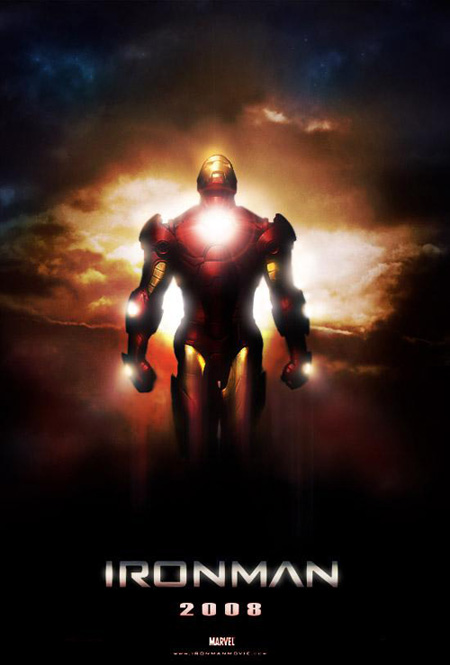
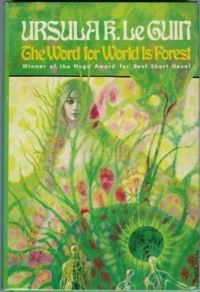
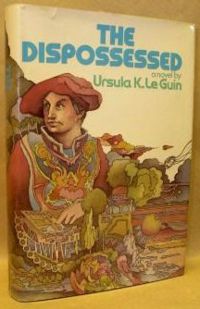




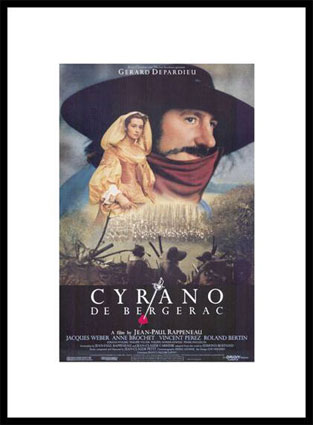 I think that this version is just the best of all the ones I've ever seen.
I think that this version is just the best of all the ones I've ever seen.